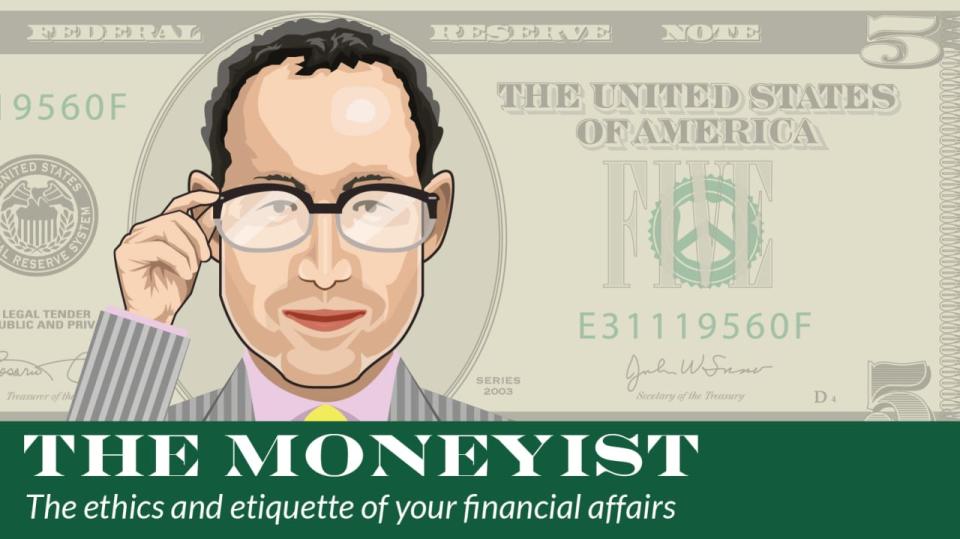‘It’s the saddest thing’: I’m happily retired and my friends in their 60s want to know how I did it. Should I tell them my secret?

Dear Quentin,
I’m at retirement age and I started investing in my 20s. I’m in a comfortable position now where I can live off of my interest, dividends, Social Security and retirement account. It’s the saddest thing: Friends in my age group who see how comfortable I live want to know my advice on investments.
I look at them and I don’t even know what to say because truly you have to start young. The best advice I can tell them now is to purchase the highest paying CDs they can find and perhaps invest in some good dividend stocks, but even then you’ve got to invest in a lot of shares to make it worth your while.
Most Read from MarketWatch
Is the stock market closed on Juneteenth? Will the post office be open?
Nvidia’s stock packs 50% more upside, says Wall Street’s new biggest bull
Has anyone else experienced this — and what are your thoughts?
Retired and Happy

Dear Happy,
You and your friends are in No Man’s Land. Let me explain.
Friends in your age group are asking you to give them financial and retirement advice, even though they probably know they should have started saving in their 30s (or, ideally, 20s). No one likes to be told, “It’s too late.” Or, “Whoah! Good luck with that.” But the truth is that people who are most comfortable in their retirement didn’t do anything remarkable — they started saving and investing early, had an IRA or 401(k) with an employer match, bought a home and paid their mortgage on time, and kept a lid on their credit-card debt.
Bear with me while I tell you a story. Last weekend while playing tennis, my doubles’ partner was standing halfway between the net and the baseline, and the ball either went whizzing past him or landed at his feet, forcing him to jump about madly and wave his racket as if he were trying to swat a swarm of bees. I’d been there — and I could see the problem. I’m an average player — no great shakes, but good enough to get the ball over the net most of the time and enjoy the game. So I had a decision to make: Do I give him unsolicited advice?
Alas, I did. I told him, “A friend recently gave me some great advice when I was standing in that spot. He told me, ‘You’re standing in No Man’s Land. You are too vulnerable. You’ll see a big difference if you get closer to the net or closer to the baseline.’” I had felt grateful that something so simple could improve my game. But not everyone wants to be told what they’re doing wrong. Unsolicited advice can imply incompetence. He did not look like he appreciated the feedback, and I have since regretted passing on the tip.
Mixing friendship and finance is perilous
Your friends may need to look elsewhere for inspiration. As this Harvard Business Review article on advice points out, it’s important who you ask and why. “In a study of CEOs, for example, those at companies with poor financial performance (measured by market-to-book value) were more likely than those at high-performing ones to seek advice from executives in the same industry and with a similar functional background. The result was limited strategic change — less product-market and geographic diversification.”
As an advice columnist, I will try to bring some context and perspective. But I will never tell people what stock to invest in and I will never recommend they see a Broadway play or, worse, invest in one. “Several field studies confirm that advice-seekers are more receptive to guidance from friends or other likable people,” Joshua Margolis and David Garvin, two Harvard academics, wrote in that paper. “Though friendship, accessibility, and nonthreatening personalities all impart high levels of comfort and trust, they have no relation to the quality or thoughtfulness of the advice.”
Mixing friendship and finance is perilous. Just ask this couple, who wrote to me in 2021, wondering why they fell out with their neighbors. They were friendly, until one day the “successful” neighbors introduced the MarketWatch readers to their financial adviser. One couple continued to live high off the hog, while the other couple who wrote to me took the expert advice to heart and, crucially, lived within their means. “They traded in cars frequently,” they wrote, “we ran ours into the ground.” Guess who was ready to retire at 55?
I do, however, believe I got at least one thing right during that awkward “do I or don’t I?” tennis game. Whether or not the advice is solicited, it’s always better to talk about your own experience and what worked for you, rather than tell somebody explicitly what they should do. No one likes to be criticized, and it takes not a small degree of humility to acknowledge that the person giving the advice might actually be right. But there’s always a risk it could backfire: “Who do you think you are? Carlos Alcaraz? Warren Buffett?” So tread carefully.
The upside of ‘economic connectedness’
Tennis aside, what now? Don’t say, “You’re 60 and only thinking about your retirement now?” Do say, “I started putting money into my IRA in my 30s.” But either way, you’re in a lose-lose situation. There is no secret. Your friend will either walk away with a burning resentment or feeling like they’ve missed the boat. You are peers, therefore they will compare their finances and lifestyle with yours. It’s hard to avoid a sense of competition. It’s part of the human condition. What’s more, if you can’t offer a solution, it’s better that you avoid the conversation, if at all possible.
This recent study, “Friends with Benefits: Social Capital and Household Financial Behavior,” looked at friendships and finance, and found that people can learn from wealthier friends by emulating them, but it certainly helps to start early. The researchers concluded: “We find that the most important measure of social capital in explaining stock-market and saving participation is economic connectedness, defined as the fraction of one’s social network with high socioeconomic status.”
You are the wealthy friend in this scenario, keeping in mind that wealth is relative, but you are also in No Man’s Land. You are in an impossible position. If your children or grandchildren were wondering why they were always swinging for a ball that they could never hit, I’d tell you to intervene and tell them to calm down, and look at the amount of court available. But your peers who had no strategy for retirement are looking for answers that don’t exist. They have run out of court.
Sure, we can do what our rich friends do, but it takes 30 years, not 30 minutes.
More columns from Quentin Fottrell:

 Yahoo Finanzas
Yahoo Finanzas 